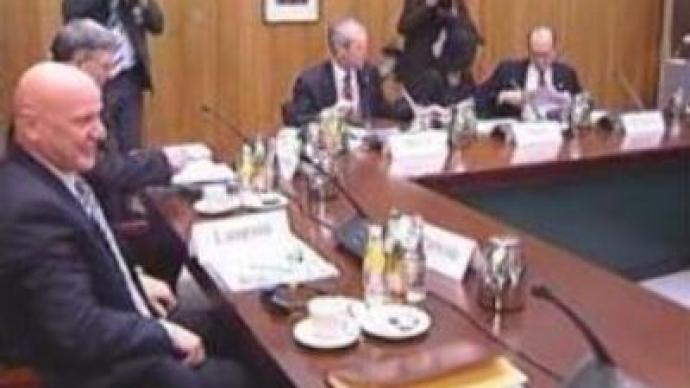Middle East Quartet continues talks in Berlin

The Iran nuclear issue, as well as U.S. plans to deploy its anti-missile defence system in Poland and the Czech Republic, dominated the second day of talks held in Berlin between the members of the Middle East Quartet.
The U.S. Secretary of State, Condoleezza Rice, the EU Foreign Policy Chief, Javier Solana, and the Russian Foreign Minister, Sergey Lavrov, along with his German counterpart, Frank-Walter Steinmeier, tackled the Iranian nuclear dossier.“We believe we have to go on with the double strategy. On the one hand, Iran should regain the confidence of the International Community; on the other hand, we are ready, if Iran sends us such signals, to resume talks. Hopefully, those in charge of the matter in Iran will realise that the nuclear programme will not make everyone happy. There are more people who wish to stop Iran's international isolation and agree to the co-operation that we are offering,” said the German Foreign Minister, Frank-Walter Steinmeier.Mr Lavrov and Mr Steinmeier's talks dealt with a broad range of issues, from Iran to the Middle East and Kosovo's final status.Both politicians agreed Martii Ahtisaari's plan failed to satisfy both Belgrade and Pristina. The German Foreign Minister called for the dialogue to be intensified.Sergey Lavrov dismissed Mr Ahtisaari's comments that time was running out for a Kosovo deal and warned that haste would not help resolve the deadlock.“Of course, I do respect Martii Ahtisaari but it is not up to him to decide on whether the time for decision making has expired or not. Mr Ahtisaari's function is as a mediator in the settlement of the Kosovo issue. That's the first thing. Secondly, it is only parties to the conflict that can take a decision and no one can press one on them. At least, Russia will not be involved in this. Thirdly, we are really constructive in the context of the contact group. It is based on the comprehensive fulfilment of the 1244 resolution. Till now the details of the resolution have been met to the satisfaction of Kosovo Albanians,” Mr Lavrov stressed.Moscow is also concerned with U.S. plans to deploy its anti-missile defence in Poland and the Czech Republic.Sergey Lavrov said Washington's moves were a step away from a collective NATO-Russia anti-missile defence programs.“I start asking myself a question. Perhaps, everyone is keeping silent and waiting for the results of the U.S. talks with Poland and the Czech Republic. Then come other collective projects such as NATO anti-missile defence and Theatre missile defence systems which will follow the logics and parameters of the U.S. national anti-missile defence system. It really looks like this because of the pauses in negotiations of NATO and the Russia-NATO Council which have co-incided with the discussions over the deployment of the U.S. anti-missile defence system in Poland and the Czech Republic. I want to make clear; this is a security issue of everybody's concern,” Sergey Lavrov noted.His German counterpart said the anti-missile defence shouldn't harm the existing nuclear disarmament agreements.“We should take into account that in the course of strategic discussions we have to remember that they should not undermine the arms control system that is being developed since 1999. We should keep on developing the system,” he said.Sergey Lavrov completed his day in Berlin by laying flowers at the famous monument to Soviet Soldiers fallen in Germany during the WW2 in Tiergarten.
You can share this story on social media:












